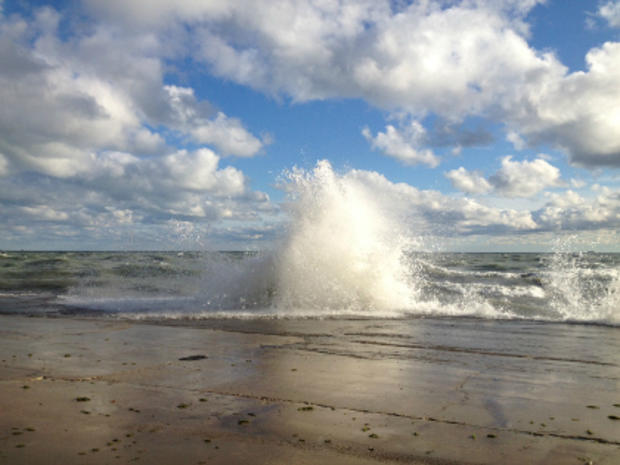Lake Michigan Water Level Hits Record Low
CHICAGO (CBS) -- The water levels of Lake Michigan and Lake Huron are lower than they have ever been, the U.S. Army Corps of Engineers said Tuesday.
Lake Michigan Low Water Levels
Though water levels have been below average for the past 14 years, last winter's lack of snow and the hot and dry summer are to blame for this year's record low.
"We've had a prolonged period here of dry conditions and conditions that led to high evaporation over the winter," said John Allis, chief of the Great Lakes Hydraulics and Hydrology Office at the Corps, the office that monitors Great Lakes water levels.
He said snow last year would have helped.
"We didn't have that good spring runoff and refill of the lake," Allis said.
There was only a 4-inch seasonal rise last year, compared with an average rise of 12 inches, according to the Corps of Engineers.
Water levels, which have been recorded since 1918, are not projected to be back to normal for some time, Allis said.
"It's going to be a long time before water levels get close to average again. . . It took a while to get here and it will take a while to get out of these low level conditions," he said.
It means people will have to adapt, Allis said. For example, harbors might need to be dredged more often.
It also means the water level in the Chicago River could be higher than the lake level — causing a big problem, said Henry Henderson, Midwest director of the Natural Resources Defense Council.
When the Chicago River was reversed to move the city's contaminated water away from the lake, it was engineered with the assumption that water levels in the lake would be higher than the river, Henderson said.
"If the lake is lower than the river, that drainage system ceases to function," Henderson said. And that becomes an environmental, economic and public health issue, he said.
But the Metropolitan Water Reclamation District of Greater Chicago, which manages the river, said in a press release that the river can be managed with locks, gates and pumps that prevent the river from flowing into Lake Michigan. The agency said there was no immediate crisis.
(Source: Sun-Times Media Wire © Chicago Sun-Times 2013. All Rights Reserved. This material may not be published, broadcast, rewritten, or redistributed.)




